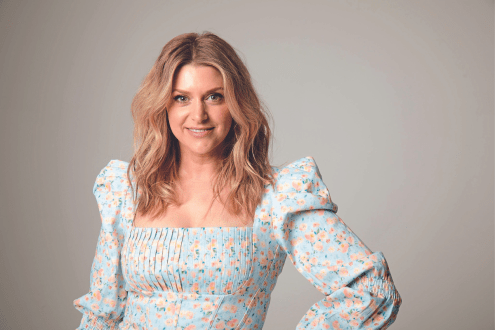Psychological profiling for children
Clem Felix understood intuitively what made one of her children tick, but not the other, and they clashed. Then she discovered psychological profiling for kids…

My twins, a boy and a girl, are young teenagers. Raising my daughter has, in the main, been a breeze, not because she’s a biddable little angel – far from it – but because she’s a chip off the old block. When issues have arisen, I often understand instinctively what is going on underneath. If she is angry and tearful, I know it’s probably because someone has upset her or she’s overwhelmed and that what she needs is a cuddle and lots of quiet time – the same as I would need if I was behaving like her.
My son is an easier child in many ways, but I haven’t found him easier to parent. In his case, my instinctive responses have more often than not been ‘off’ and failed. If he is grumpy, I know from long experience that neither cuddling nor suggesting he has some quiet time in his room will go down well. I may try to feed him, or tease him out of it, and these things may help or may not, but I don’t have the same instinctual insight.
With my husband, this situation is reversed. He and my daughter often clash. I can leave the room for two minutes and come back to World War Three as he lays down the law about tidying up, rather than enlisting her support. But with my son, who may have been running rings around me for hours, only one wry look needs be exchanged with Dad, the chores are done and they’re playing table tennis.
If this sounds like some gender cliché, I thought the same, until I read the most useful of the parenting books I bought when they were young. Nurture by Nature: Understand Your Child’s Personality Type and Become a Better Parent by Paul Tieger and Barbara Barron-Tieger, uses the principles of Myers-Briggs Type Indicator (MBTI) profiling to children and parenting, and reading it, for me, was like a 500W lightbulb going on.
Myers-Briggs is a long-established personality profiling system, based on the Jungian premise that we are born with inherent preferences relating to how we take in information; how we make decisions; where we derive our energy from; and how we like to live in the world. MBTI asks questions to highlight these preferences, building up a ‘type’ picture that helps people not only to better understand themselves, but to appreciate people who are different from them.
- It was MBTI that highlighted the introvert (I)/extrovert (E) difference. This is the first ‘preference’, showing where a person’s attention is focused – towards the internal world or the external, and where their energy is derived from – time spent with others or time alone. We all need both of course; as in all areas of MBTI it’s about a matter of degree, and what comes most naturally to us.
- The second preference is about how we take in information – intuitives (N) see the bigger picture and make connections, while sensing (S) people absorb the world as a series of concrete facts.
- The third is about decision-making. People with a thinking (T) preference use dispassionate reasoning and favour concepts like ‘justice’. Feeling (F) types take more account of human fallibility and values like harmony.
- The final pairing is about how we live in the world. If you’re decisive and prefer a structured lifestyle with clear rules, you’re probably judging (J), while perceiving (P) types dislike rules, postpone decisions and prefer to be spontaneous.
All these preferences then come together to build a four-letter type that, in my experience, can tell you much more than the sum of your parts.
It was easy to draw up types for both children. They loved joining in with the questionnaires in the book, and eight years on, they still love looking them over. They always come out with the same type, and it has helped them to understand themselves.
Playing to type
My daughter is an INFP – close to my INFJ. My son is an ESTJ, so quite similar to his dad, who is an ISTJ. What does this mean?
Well, my daughter’s ‘I’ result explains why she finds the social aspect of school tiring and she needs downtime when she gets home; a packed schedule – or any after-school activities – leave her in meltdown. Her intuitive ‘N’ contributes to this; her mind is constantly processing new information, making connections and building theories, which requires plenty of quiet brain time.
Her ‘F’ focuses her towards humanitarian interests, and teamed with her ‘N’, sets her from an early age on a quest for meaning.
Her P means that deadlines and organisation are challenges for her. It also means that time is an open-ended concept; she loves nothing more than a weekend with no commitments, so she can drift between activities (leaving a trail of chaos in her wake that drives her dad mad). If she needs to do something, she likes to work out how to do it her own way.
My son’s ESTJ is the exact opposite. As an extrovert, he likes having people around. My daughter’s open-ended weekend is his idea of hell – he wants engagements and activities stacked up, and to know exactly what is planned (classic ‘J’). As the only ‘E’ in a houseful of introverts, he suffers. He always wants to chat, and if no-one will engage, he just emits noise.
His ‘S’ means he is literal. As an ‘N’, I sometimes talk in a woolly way, which my daughter understands, but my son (and husband) just stare in incomprehension. I’ve learned to state things precisely, and that if I want my son to do something, he likes a list of clear instructions. He’s a great cook and his ‘S’ searches out strong flavours (sensory fulfilment is another aspect of sensing), but he will never improvise or veer from a recipe.
His ‘T’ is focused on justice over compassion. He will accept discipline if it is scrupulously fair and consistent.
Adaptive parenting
As an ‘NF’, focused on the big picture and compassion, I endlessly make allowances for both children, and this works with my daughter, to whom rules are relative and fairness is an emotional concept. But if I make allowances for her, my son cries unfair, and if I make allowances for him, he loses respect for me. With him, I need to police the behaviour first then find out how he is; with her, I have to keep track of the emotional state underneath, before gently pointing out where behaviour is awry.
When they were younger, my son loved nothing more than a star chart – clear rules, clear outcome, and a material reward. My daughter, the meaning searcher, was affronted by them. With her, it’s all about talking it through, the relationship, and understanding why.
Academically, they’re completely different. My son does his homework at the kitchen table – the quiet of his bedroom is like a punishment (E). As an ‘S’, he finds it hard to extrapolate, so essays are tough; his inclination is to list facts. He loved primary school; learning times tables and spelling, and the sense of concrete accomplishment this brought.
My daughter hated it; for her, it was tedious and irrelevant. She can expand endlessly on a subject (N), making connections, but sometimes needs to be guided to stick to the facts. She prefers to work alone than collaboratively, and needs quiet. He thrives on competition; she is stressed by it. He works steadily towards a deadline (J); she’ll leave it till the last minute then work into the night (P).
I could go on. Nurture By Nature looks at each type, and gives tips throughout childhood; about how to understand your child, and also support them in areas that don’t come naturally. I learned with my daughter to speak softly and correct gently; to ‘respect the intensity of her feelings’ and to be reassured that there is nothing ‘wrong’ with her (sometimes) very emotional responses; to expose her to as much culture as possible; to show love by listening to her ideas.
With my son, I learned to ‘be immediate and consistent in all discipline’; to stick with plans; ‘to use money and additional responsibility as incentives’; to provide plenty of outdoor physical outlets for his energy. I’ve been warned that in the teenage years he may have a short, sharp rebellion against our authority, and that she may be drawn to the counter-culture in a big way, with tips on how to steer them both safely through.
Later on, we’ll use their profiles when they’re looking at careers, to help them choose paths that play to their strengths.
Nurture By Nature by Paul Tieger and Barbara Barron-Tieger (ebook £4.99; paperback, £13.20, Little, Brown).
Photograph: iStock
More inspiration:
READ Parenting wisdom from an elder by Vanessa Anstee on LifeLabs
READ They f**k you up. The ABC of parenting on LifeLabs








